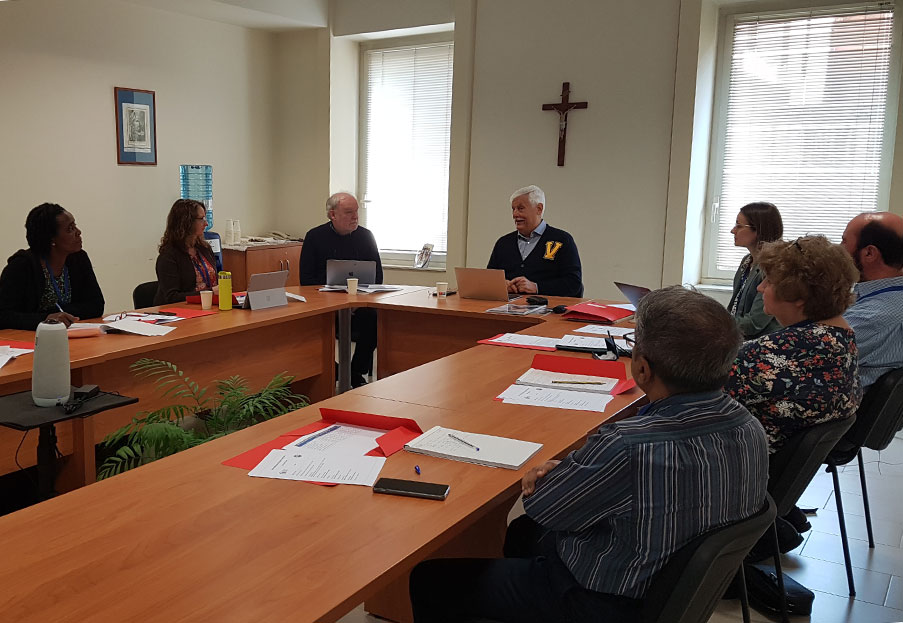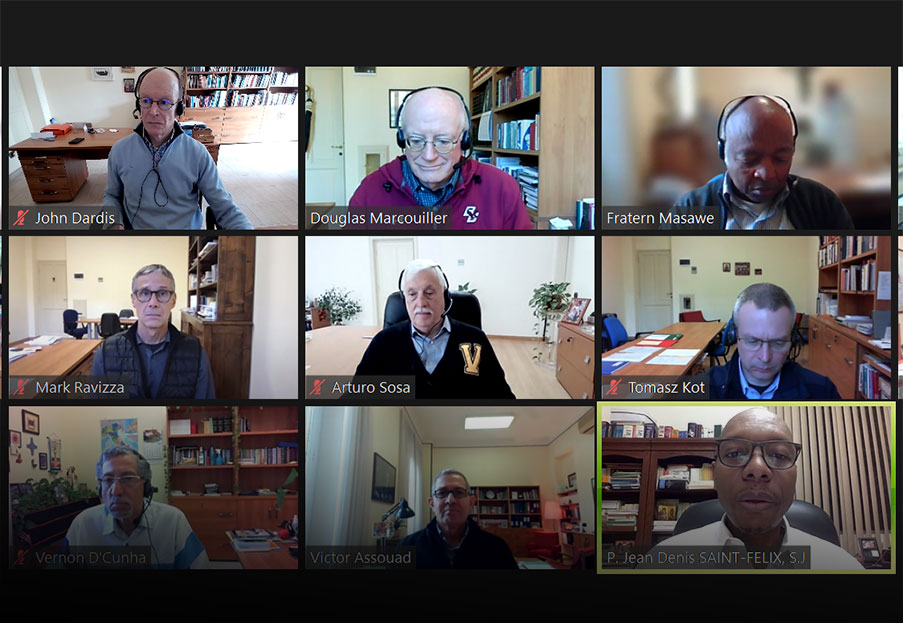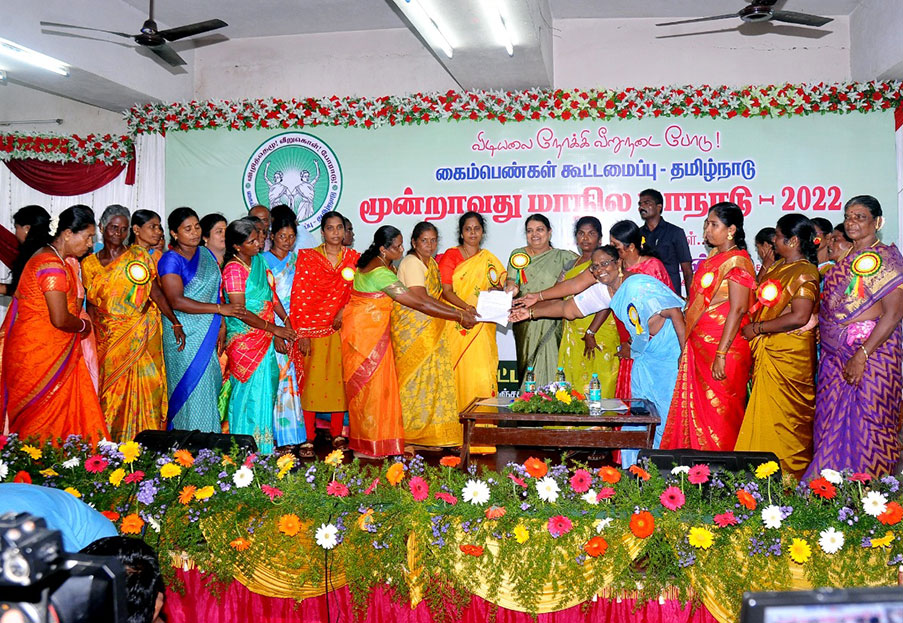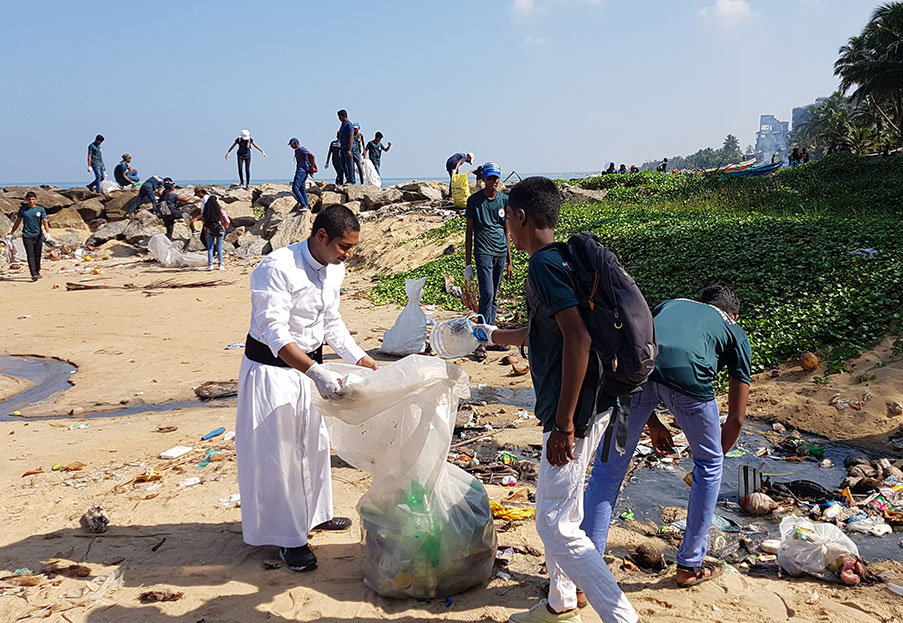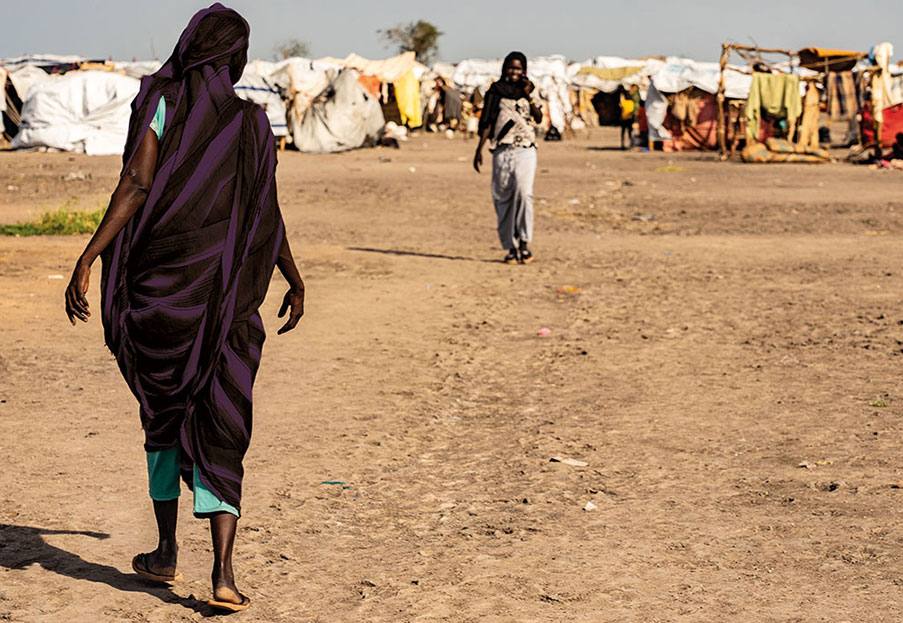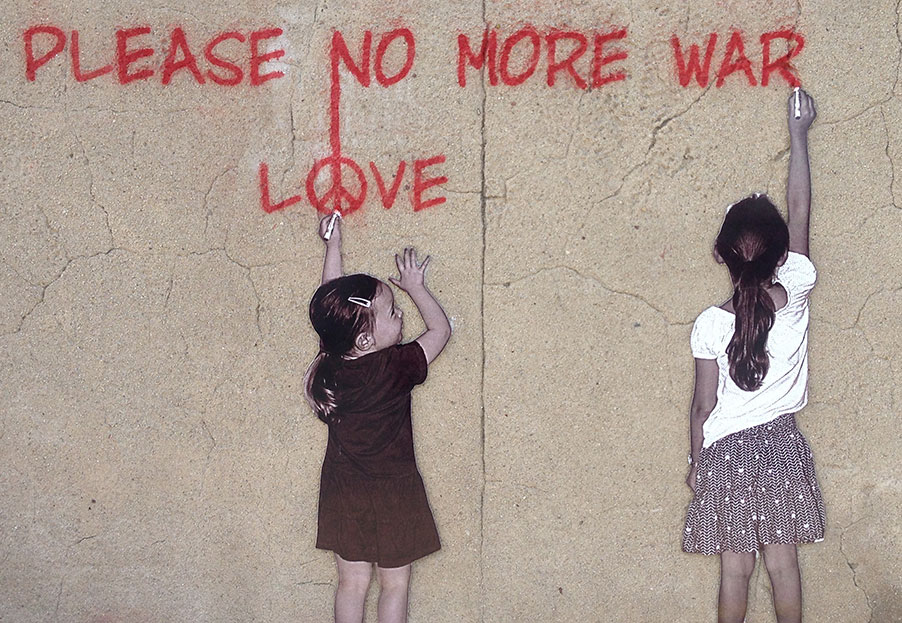Rebuilding social fabric through “living together”
As is the case in other Jesuit Provinces in Latin America, the social ministry of the Mexican Province includes a CIAS, a Centro de Investigación y de Acción Social (Centre for Research and Social Action). This CIAS was relaunched in 2015, and renamed “Jesuits for Peace”. Mexico is a country beset with insecurity and violence. There is much scope for CIAS to be involved. I spoke to the current director, Gilberto Lenin Torres Lázaro. For him, the defining approach of CIAS – Jesuits for Peace – is its way of proceeding. CIAS has invested significantly in social research. At the same time, it has a firm footing in grass-roots communities.
Gilberto Lenin Torres, the CIAS project as a whole, in Mexico, is defined by the objective to “Reconstruct the Social Fabric” (RTS, to use the Spanish acronym). Could you elucidate on this?
We
believe that by trying to rebuild the social fabric of society, we can create
strategies, programs and actions that build peace. Proposing “peace” baldly and
directly can be misinterpreted, because each interest group may have its own
vision of peace. Examples of such groups would include the police, community
groups, and church communities. RTS is the foundation for any of them to create
the conditions that will lead to a peaceful environment.
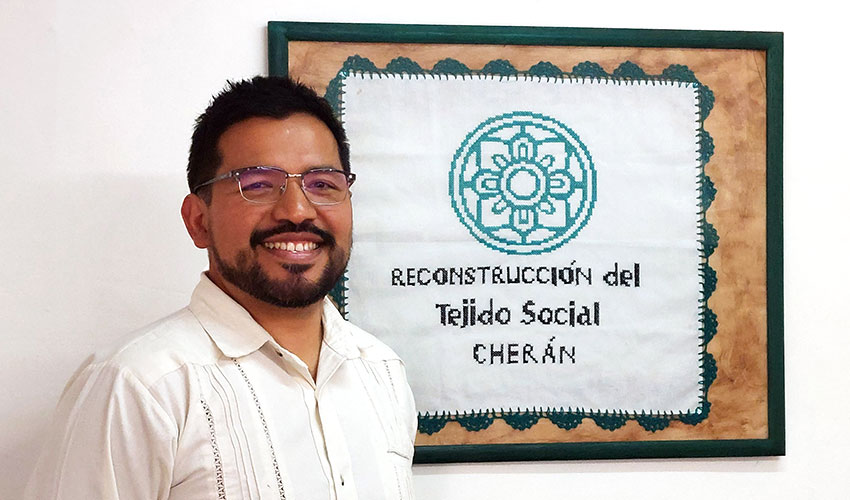
Gilberto Lenin Torres Lázaro.
We have definite indicators which allow us to verify whether our RTS efforts are successful. These include (a) the development of positive links between people in a community, between people and their institutions, and even between people and their environment; (b) the strength of the identity which a person feels in belonging to a group, to an institution, and even to his environment. For the stronger the identity, the more interest there is in building a safe and peaceful environment; and (c) the capacity of a group or community to agree to organize their common life more effectively.
When we start working within a community or an institution, these indicators allow us to know the state of the social fabric that operates among them. It helps us to identify areas that need to be strengthened to create an environment of peace.
You also talk a lot about “Buen convivir”, which could be translated as “good neighbourliness”, but which probably implies much more.
Yes,
we bring with us what we call an “operational political ideal”, the “buen
convivir”. It is something that grows up from, and is actually generated by the
living conditions that we want to achieve. This is the ideal that drives us. The
social systems in which we live really make it difficult for us to dream. So
our program not only aims to help people to identify their needs and to try to
address them, but also to help them to start dreaming again. To do this, we
help people to both BE and DO “institutions”. Ordinary people have much
mistrust in institutions. Our program aims to generate new confidence by
inviting people to become directly involved in developing a citizenship which
makes clear that it is good to live together.
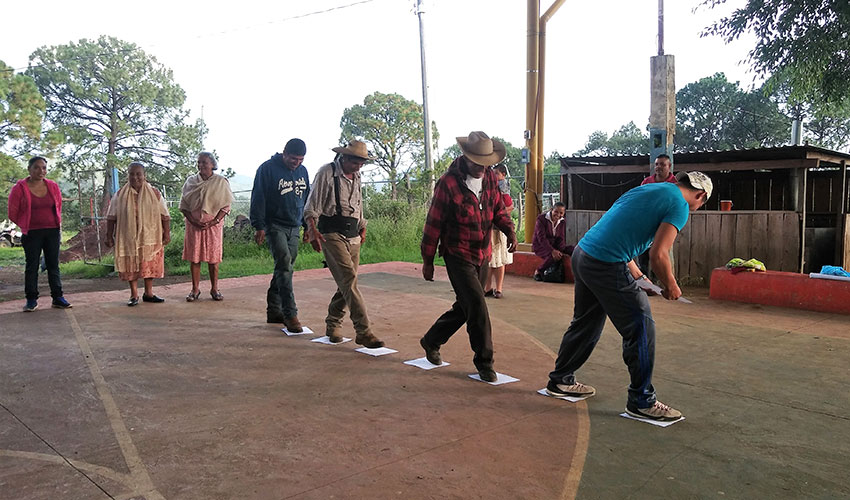
Community empowerment workshop, El Carrizal, Tancítaro.
In practice, we do this with very different groups:
• with municipal police departments, even though this may seem a challenge;
• with church groups, because the Church, despite everything, is a moral reference point which can reach many people;
• with city councils, we offer a diploma in “Public Engagement for the Reconstruction of the Social Fabric.” We are able to do this in conjunction with one of the Jesuit universities.
We are also planning to launch a program for the universities themselves, because we believe that universities, by stepping outside their walls, can have a political influence on the social fabric of its environment.
CIAS has carried out its projects with a number of police groups, a few city councils, a few parishes... but there are hundreds, thousands of such groups! It seems an impossible task!
No,
not impossible! First of all, violence and insecurity do not just crop out of
nothing. In the same way, peace-building does not emerge from a vacuum. We have
to make a start and, little by little, create the conditions for peace. We have
put great stress on research, so that others can use our results. Our sessions,
and now our university course, offer training that allows many groups
(citizens, institutions, parishes) to be trained: this has a natural multiplier
effect.
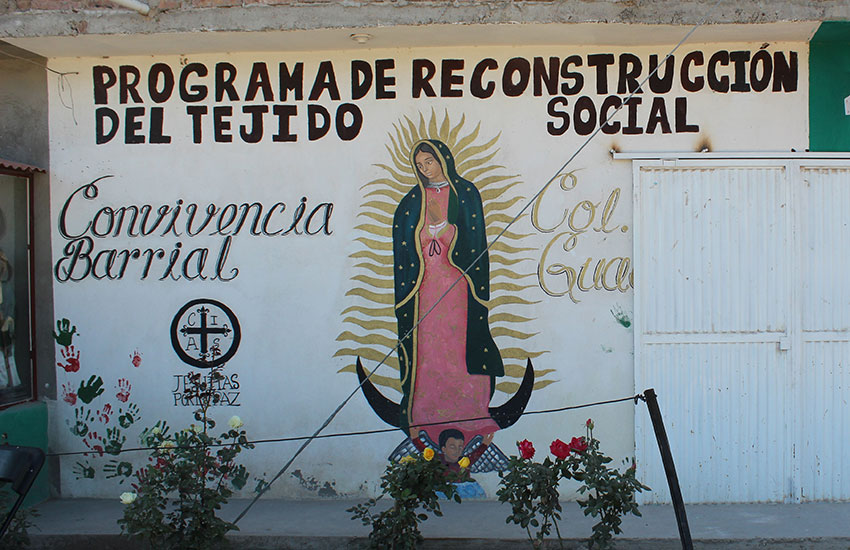
"Reconstruction of the Social Fabric".
How do you situate your efforts in the global mission of the Society of Jesus? For example, how, on the international level, do they relate to the Universal Apostolic Preferences? How is CIAS – Jesuits for Peace – “Jesuit”?
We always keep the aims of the Society of Jesus and the “Ignatian spirit” in mind. We work among and for the most disadvantaged groups in society, especially young people and poor women. Our methodology is directed to families, at deepening dialogue within families. This includes a spiritual dimension. However, we use a method which we think is very Jesuit; “we enter through the door where people find themselves, and to hope to have them leave through our door.” If our language is too directly religious, people drift away. Rather, we need to deal with hearts, according to the Ignatian way.
Ignatian
pedagogy is the foundation of everything we do in our team. It provides the
rhythm, a focus not only on the person but also on his or her environment. Here
we find again our ideal, that of the “Buen convivir”. In this way, we believe that
we are responding to the call of Pope Francis to build a Church of open doors, a
Church that goes out to people. Our monthly virtual prayer meeting, in which
all our collaborators take part, helps us in this. We also have the experience of
a retreat, the Spiritual Exercises, every year. This supports us in the project
of creating communities where security and peace can have a chance.

